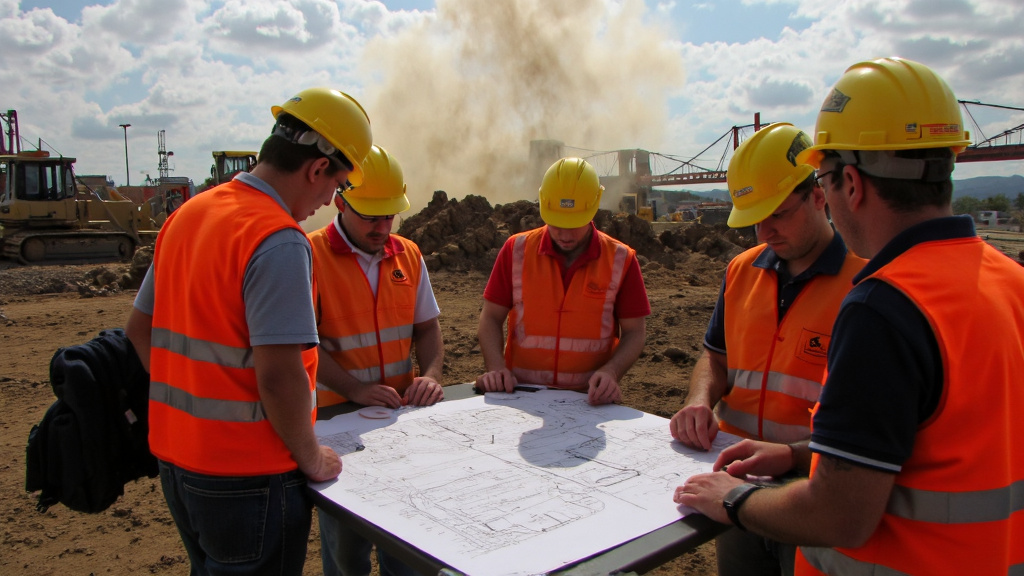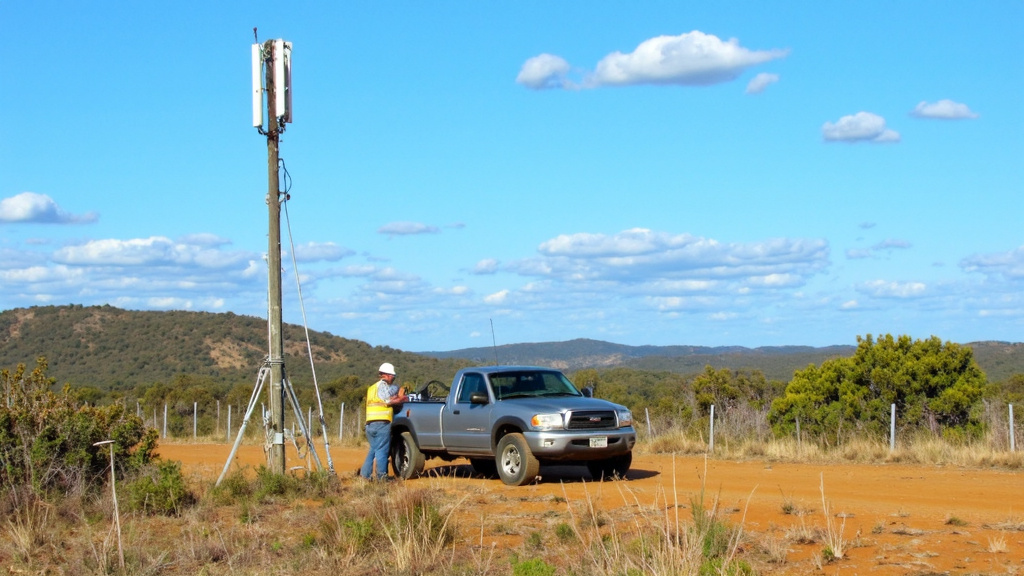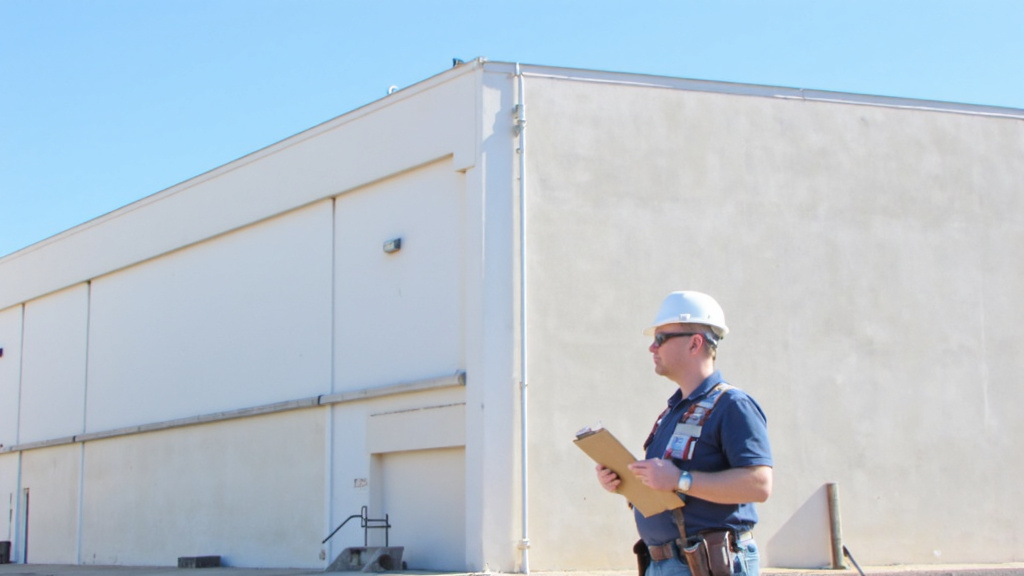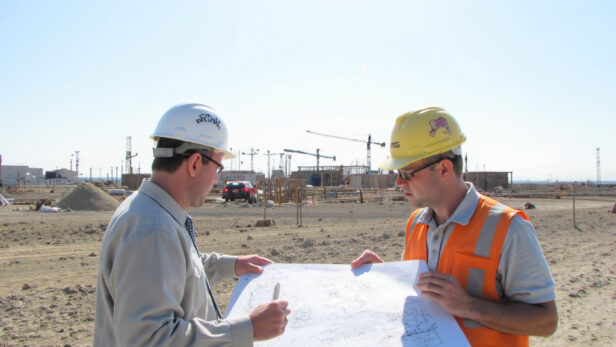The Texas landscape requires a distinct type of site management expertise. From the bustling urban developments in Dallas-Fort Worth to expansive rural properties and industrial facilities, we observe firsthand how effective site management forms the foundation of successful construction and ongoing operations.
It’s not just about maintaining a property—it’s about coordinating the complex interplay of resources, regulations, and execution that keeps projects on track.
Site management in Texas encompasses a wide range of specialized services. Across the Lone Star State, companies provide everything from cellular tower maintenance to stormwater detention and comprehensive construction management.
The ongoing Texas construction boom has increased the demand for skilled site managers who understand the specific challenges of our climate and regulatory environment.
The harsh Texas conditions—scorching summers, flash flooding risks, and occasional freezes—create unique demands that we’ve learned to anticipate and address proactively. This is why property developers and wireless infrastructure companies seek out experienced site management partners who bring both technical knowledge and practical field experience.
The difference between adequate and exceptional site management often determines whether a project finishes on schedule and within budget.
What Construction and Infrastructure Management Services Are Available?

Texas offers a dynamic construction landscape with services extending beyond basic building. As general contractors, we provide integrated construction management to keep projects on schedule and within budget. Our comprehensive approach covers everything from preconstruction planning to final inspections.
Commercial and industrial concrete work is a foundational service in Texas. We manage complex concrete installations that meet exact specifications, from multi-level parking structures to industrial foundations supporting heavy equipment. These services require precise forming, proper curing, and quality control measures that only experienced crews can execute.
Sitework coordination is another critical component of our services. This involves managing excavation, grading, erosion control, and site utilities, all while navigating Texas’s varied terrain from coastal plains to Hill Country limestone. The 2023 construction forecast for Texas includes increased activity in this sector, driven by the $85 billion in roadway projects recently announced by TxDOT.
Utility installation demands specialized expertise, particularly in rapidly growing Texas metropolitan areas. Our teams coordinate with local authorities on water, sewer, electrical, and telecom infrastructure, ensuring proper permitting and compliance with municipal requirements. With Texas’s commitment to infrastructure development, properly executed utility work is essential.
Serving Multiple Industry Sectors
The scope of construction management services in Texas spans commercial, industrial, and institutional sectors, each with unique requirements and regulations. For commercial developments, we navigate tenant improvement specifications while maintaining efficient project timelines, crucial in high-growth markets like Dallas-Fort Worth and Houston.
Industrial construction requires heightened safety protocols and specialized equipment capabilities. Our project managers coordinate with engineers, equipment suppliers, and labor resources to execute industrial builds that support Texas’s robust manufacturing and energy sectors. According to industry reports, Texas demonstrated exceptional growth in industrial construction throughout 2023.
Institutional projects like educational facilities, municipal buildings, and healthcare centers require meticulous planning to minimize disruption to ongoing operations. We implement phased construction approaches that allow for continued functionality of existing facilities while new construction or renovations progress, a technique particularly valuable for government projects.
Working with government entities and private sector owners requires different approaches to procurement, reporting, and compliance. Public projects follow strict bidding and documentation protocols, while private sector work often prioritizes speed-to-market and value engineering. Our management teams adapt to these varying needs while maintaining consistent quality standards.
Specialized Construction Management Capabilities
Beyond core services, specialized construction management capabilities include sustainable building practices increasingly demanded across Texas markets. Our teams implement resource-efficient techniques that reduce environmental impact while meeting project requirements, aligning with growing client priorities for LEED and other green building standards.
Risk management is crucial in Texas construction services. We evaluate potential challenges from weather disruptions to supply chain uncertainties, developing mitigation strategies to protect project timelines. This proactive approach has proven valuable during recent materials shortages and labor constraints affecting the industry.
Technology integration enhances our service delivery through Building Information Modeling (BIM), drone site surveys, and advanced project management platforms. These digital tools improve coordination between stakeholders, reduce errors, and increase overall project efficiency. The construction technology landscape continues evolving, with Texas firms often leading the adoption of innovative solutions.
Quality assurance programs round out our service offerings, with structured inspection protocols and documentation procedures that verify compliance with design specifications. We implement systematic testing and verification measures throughout the construction process, ensuring the final product meets all performance expectations, a critical factor for both immediate occupancy and long-term facility operation.
How Are Wireless and Telecommunications Sites Managed in Texas?

The management of wireless and telecommunications sites in Texas requires specialized expertise across multiple disciplines. At EB3 Construction, we understand the complexities involved in developing and maintaining these critical infrastructure assets. Texas hosts a network of specialized firms that collectively ensure the state’s communications backbone remains operational and compliant with regulatory requirements.
Site Acquisition and Development
The lifecycle of a wireless site begins with proper site acquisition and development. We coordinate with property owners to secure optimal locations for telecommunications infrastructure based on coverage requirements and technical specifications. This foundational step involves navigating complex lease negotiations and understanding the specific topographical needs that impact signal coverage.
Working with specialized telecommunications companies like Site Property Company in North Texas, we implement comprehensive site development strategies that include identifying viable locations, conducting feasibility studies, and preparing detailed construction documentation. Our teams understand the technical parameters that determine whether a site will function effectively within the broader network architecture.
The process requires careful documentation of ownership records, zoning compliance verification, and thorough due diligence reporting. We carefully evaluate access requirements, power availability, and backhaul connectivity options before finalizing site selection. This meticulous approach prevents costly adjustments later in the development timeline.
Zoning and Permitting Navigation
Securing the necessary approvals presents significant challenges in telecommunications site development. We manage the complex permitting and entitlement process, working with local jurisdictions across Texas to ensure compliance with municipal codes and zoning ordinances that often weren’t written with modern telecommunications infrastructure in mind.
Our permit specialists develop comprehensive submission packages that address aesthetic concerns, structural requirements, and RF emissions compliance documentation. We coordinate with local building departments, planning commissions, and architectural review boards to secure timely approvals while minimizing procedural delays.
The regulatory landscape in Texas varies significantly by jurisdiction, with each municipality establishing its own standards for telecommunications facilities. We stay current with these evolving requirements, preparing variance applications when necessary and representing clients at public hearings to address community concerns about proposed installations.
Construction Management and Implementation
Once permits are secured, we oversee the physical construction of telecommunications sites with precision and attention to detail. Our construction management approach encompasses everything from ground preparation and foundation work to tower erection and equipment installation. We coordinate specialized crews for tasks including steel erection, electrical service implementation, and fiber connectivity.
Safety protocols are paramount during construction, particularly for elevated work on towers that often exceed 200 feet in height. We implement comprehensive fall protection systems, conduct regular safety briefings, and maintain strict compliance with OSHA regulations throughout the build process. Our construction documentation includes detailed as-built drawings that accurately reflect the completed installation.
The implementation phase requires careful sequencing of trades and close coordination with equipment vendors. We manage the logistics of delivering sensitive electronic components to often remote locations, ensuring proper handling and protection throughout the installation process. Our quality control procedures verify that all installations meet both carrier specifications and applicable building codes.
Ongoing Site Maintenance and Operations
After construction, we transition to the operational phase where ongoing maintenance becomes essential. Collaborating with specialized maintenance providers like Cutting Edge from Spring, Texas, we implement regular vegetation control, access road maintenance, and facility upkeep that ensure sites remain accessible and functional in all weather conditions.
Proper vegetation management prevents interference with equipment while maintaining compliance with local ordinances. Our maintenance protocols include regular inspection of security systems, verification of backup power readiness, and documentation of site conditions to track any developing issues before they impact service.
For carriers managing multiple sites across Texas, we provide consolidated reporting and maintenance tracking that simplifies network operations. Our team coordinates with tower climbers for elevated equipment maintenance, arranges for generator servicing, and schedules preventive maintenance based on manufacturer recommendations and environmental factors specific to each location.
Technical Compliance and Modernization
The telecommunications landscape continues evolving, requiring regular upgrades to existing infrastructure. We manage technology refresh projects that replace outdated equipment while maintaining network uptime. These modernization efforts often involve structural modifications to support heavier equipment loads or additional antennas.
We coordinate RF engineering teams during equipment optimization, ensuring that coverage modifications align with network design parameters. Our technical compliance reviews verify that installations adhere to both FCC guidelines and specific carrier requirements governing output power, antenna positioning, and interference mitigation.
When implementing 5G upgrades to existing sites, we manage the complex integration of new small cell technologies with traditional macro sites. This often requires additional permit modifications, power infrastructure improvements, and enhanced backhaul capacity to support increased data throughput requirements.
What Specialized Vegetation and Site Work Services Are Offered?

Vegetation control and site work services are crucial to our construction projects across Texas. Proper site preparation and ongoing maintenance directly affect project timelines, safety, and infrastructure integrity. Our comprehensive approach ensures every aspect of the site is maintained from groundbreaking through completion.
Comprehensive Vegetation Management
We offer specialized vegetation control services tailored to each site’s unique needs. Beyond basic mowing, our management includes strategic clearing, selective herbicide application, and maintenance programs that prevent regrowth around critical infrastructure. This approach is particularly valuable for wireless tower sites where equipment access and fire prevention are essential.
Our crews use specialized equipment, including track loaders and industrial brush cutters, designed for challenging terrain and dense vegetation. This machinery allows efficient clearing and maintenance in areas problematic for standard residential equipment, especially in Texas’s variable climate that accelerates growth cycles.
Routine maintenance schedules prevent costly emergency clearing operations often needed at sites with inconsistent upkeep. Our programs consider seasonal growth patterns specific to the Spring area and broader Texas regions where invasive species can quickly overtake neglected areas.
Site Work Beyond Basic Maintenance
Our site work services extend beyond vegetation management. We coordinate site preparation and maintenance operations, including drainage solutions, erosion control, and access road development. For wireless infrastructure clients, these services ensure operational reliability even during severe weather events.
We manage specialized site requirements such as fence installation, gate maintenance, and compound security features to protect valuable infrastructure. This integrated approach eliminates coordination challenges with multiple contractors, streamlining communication and project execution.
Ground stabilization is another critical service in areas prone to shifting soil or erosion. By implementing appropriate technological solutions, we help developers avoid costly repairs often following improper site preparation, particularly in regions with Texas’s distinctive soil profiles and precipitation patterns.
Project-Specific Customization
Recognizing that each development has unique needs, we conduct thorough site evaluations before proposing service packages. This assessment identifies challenges like protected vegetation zones, drainage concerns, and accessibility limitations that might affect ongoing maintenance.
For projects with phased construction timelines, we create scalable maintenance programs that adjust as the site transitions through different stages. This approach ensures resource allocation without unnecessary expenditures, allowing property owners to maintain budget discipline while meeting essential maintenance requirements.
Cell tower and wireless infrastructure sites receive specialized attention due to their critical role in communication networks. We understand the technical requirements, including clearance standards, access protocols, and emergency response procedures that telecommunications clients expect from their site management partners.
How Does Property Management Fit into Texas Site Management?

Property management goes beyond typical landlord duties to become a key part of comprehensive site management across Texas. Acting as intermediaries between property owners and various stakeholders, property managers coordinate essential logistical elements that directly affect construction efficiency, safety protocols, and regulatory compliance.
The overlap between property management and construction site operations creates a synergistic relationship that benefits developers and property owners. Through coordinated material delivery schedules, contractor oversight, and the implementation of on-site safety procedures, skilled property managers enhance construction operations while ensuring all activities comply with Texas regulations and building codes.
Construction Site Oversight and Coordination
In the Texas construction landscape, property managers serve as vital connectors between developers, contractors, and regulatory authorities. They monitor construction projects from initial planning through final handover, ensuring adherence to timelines, budgets, and quality standards—a crucial function given the complex regulatory environment in the Lone Star State.
Effective property managers proactively identify potential issues before they escalate into costly problems. By ensuring compliance with local building laws and environmental protection standards, they prevent delays that might adversely impact project completion and financial performance. This preventative approach provides significant value to real estate developers who rely on accurate assessments to make informed decisions.
The Texas Real Estate Commission (TREC) recognizes the importance of property management in the construction process, which is why key components of property management are considered real estate activities under Texas licensing laws. Property managers engaged in leasing activities, rent collection, or tenant placement must obtain appropriate real estate broker licensing to legally operate in the state.
| Requirement | Description |
|---|---|
| License Required | A property management license is required to manage properties legally in Texas. |
| Licensing Authority | Texas Real Estate Commission (TREC). |
| Pre-licensing Coursework | Completion of 270 classroom hours required. |
| Exam | Must pass a licensing exam. |
| Legal Activities | Leasing and renting are categorized as real estate activities requiring a license. |
| Exemptions | For single-family homes, if duties are limited to repair coordination without handling rents or deposits, a license is not required. |
Site Inspections as Critical Components
Regular site inspections are among the most valuable contributions property managers make to Texas construction projects. These inspections verify that work progresses according to plans while ensuring structural integrity, safety compliance, and adherence to project requirements throughout the building phase.
Comprehensive inspection protocols can uncover potential problems ranging from substandard workmanship to regulatory non-compliance or safety hazards. Early detection of these issues translates directly to cost savings by minimizing rework and preventing project delays. Additionally, thorough documentation of inspections provides transparency that reassures stakeholders and investors that capital investments are being properly utilized.
Property managers typically conduct various inspections throughout the construction process—from pre-construction surveys and foundation checks to mechanical system tests and final walkthroughs. Each inspection phase ensures the project meets expectations and complies with the strict building codes enforced throughout Texas.
Long-Term Value Enhancement
The role of property management extends well beyond the construction phase, contributing significantly to a property’s long-term value. Post-construction inspections ensure properties are fully operational and code-compliant before handover, while ongoing maintenance inspections protect the structural and aesthetic integrity of properties over time.
Through consistent site assessments, property managers help Texas developers and property owners avoid costly future repairs. Prevention-based maintenance strategies extend building lifespans and enhance property values—critical considerations in Texas’s competitive real estate market. Regular evaluation ensures buildings remain functional, attractive, and valuable within their respective market segments.
For Texas real estate investors, skilled property management provides valuable insights into how a building’s condition affects its ability to generate rental income or capital appreciation. This expertise helps owners maximize returns while maintaining property conditions that satisfy tenants and comply with regulations.
Conclusion: Finding the Right Site Management Services in Texas

The Texas landscape offers property developers and owners a wide range of specialized site management services designed to meet distinct project needs. At EB3 Construction, we have built our reputation by understanding the importance of aligning the right site management expertise with specific project requirements—be it ground-up construction, infrastructure development, or ongoing property maintenance.
Construction site management requires a coordinated approach that balances multiple moving parts while maintaining schedule integrity and budget controls. When selecting partners for wireless infrastructure development, specialized teams with technical proficiency in telecommunications can prevent costly errors and regulatory issues. Property management services require teams that understand both the physical maintenance needs and the financial implications of site decisions. In each case, experience and proven industry knowledge lead to more streamlined project execution and fewer complications.
Need expert guidance on your next Texas development project? Contact EB3 Construction to discuss your site management needs.




